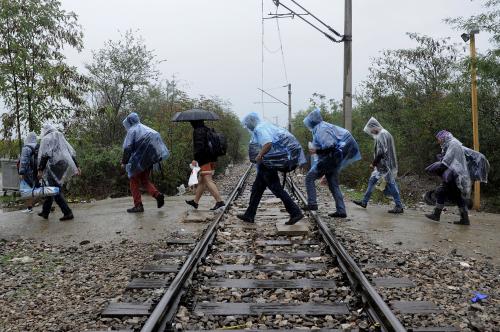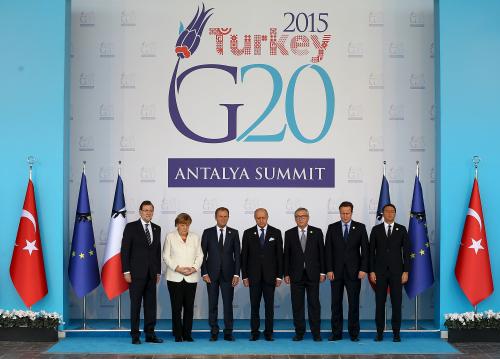

10:00 am EST - 11:30 am EST
Past Event
10:00 am - 11:30 am EST
1775 Massachusetts Avenue NW
Washington, DC
20036
Terrorist attacks in Paris and San Bernardino have stoked fears among some Americans regarding the possible entry of Syrian refugees into the United States. Concerns exist that, along with refugees, members of the Islamic State and other terrorist organizations might enter the country and carry out attacks against the U.S. homeland. These fears, coupled with often vitriolic political rhetoric, have alarmed American Muslims. What is the true level of danger refugees pose? How can the United States best contribute to managing the Syrian refugee problem? Given the 2016 presidential elections, what options are politically viable?
On February 8, the Center for Middle East Policy and the Governance Studies program at Brookings hosted a discussion on the U.S. role in addressing the Syrian refugee crisis. The panel included Elizabeth Ferris and William Galston of Brookings, experts on refugee resettlement and U.S. politics respectively, as well as Robert McKenzie, a new Project on U.S. Relations with the Islamic World visiting fellow whose research focuses on Muslim communities in the West. Daniel Byman, senior fellow and research director of the Center for Middle East Policy at Brookings, provided introductory remarks and moderated the panel.
This discussion is part of a series of Foreign Policy at Brookings events focusing on the refugee crisis and the U.S. and international community’s response.
![]() Join the conversation on Twitter using #RefugeeCrisis=”font-size:>
Join the conversation on Twitter using #RefugeeCrisis=”font-size:>
Related Content

Daniel L. Byman
October 27, 2015

William A. Galston
September 30, 2015

Elizabeth Ferris, Kemal Kirişci
November 14, 2015




Philip H. Gordon
May 16, 2025

George Ingram, Junjie Ren
March 7, 2025

Darrell M. West
September 16, 2024